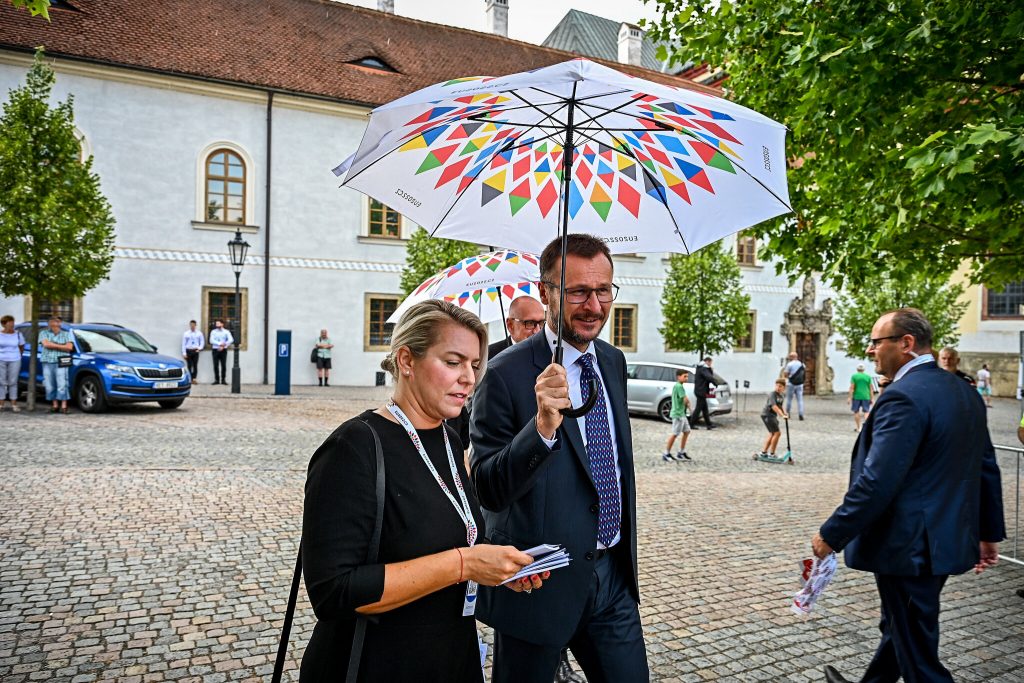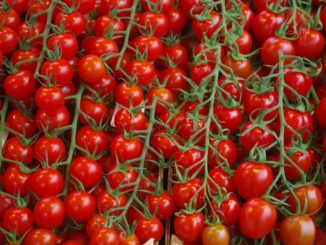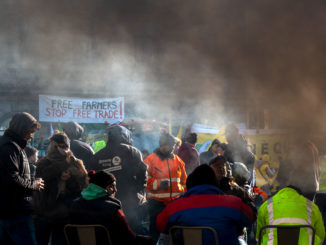
On July 1 the Czech Republic took over the EU presidency until the end of the year. So what are the priorities? Reading between the lines, Ashley Parsons offers a quick analysis of the agriculture program and what to expect.
Taking over the reins from the French presidency, the Czech Republic now resides over the EU until the end of the year. The new man at the helm, Zdeněk Nekula, who has worked in the Czech cabinet since 2002, held the position of mayor in his native village of Těšetice on multiple occasions – and is a beekeeper.
The war in Ukraine and its impacts frames the agriculture section of the 64 page programme – and sets the tone. The opening lines of the Agrifish section (outlining the priorities of the Czech Presidency in the EU Agriculture and Fisheries Council) here refer to how this presidency will “give priority to the impacts of Russian aggression against Ukraine on food security in the context of the situation on commodity markets.”
Formally, the programme lists top five priorities in AGRIFISH as:
- rules for sustainable agricultural and food production,
- the common fisheries policy and fishing quotas,
- nature and soil protection,
- veterinary issues (animal health & welfare)
- trade issues.
Read/Download – programme-cz-pres-english
Priorities
Sometimes however, its all about emphasis – and what’s not said. Recently, Zdeněk Nekula talked of the Green Deal not being dead; and of needing a clean break from the approach of the previous, highly controversial agri-business tycoon and Prime Minister Andrej Babiš.
However the presidency, while prioritising the impact on food security of the Russian invasion of Ukraine, will merely be “influenced by the discussion” on the EU Green Deal. Moreover:
“The Czech Presidency will address the gradual transition to a climate-neutral and sustainable economy with minimal negative environmental impacts, while maintaining the competitiveness of European agriculture, food production, forestry, fisheries, with an emphasis on food security.The CZ Presidency will strive to ensure that the specificities of individual EU Member States are adequately taken into account”
Emphasis here on the words ‘gradual’, ‘while’.. and, ‘specificities”. This means de-prioritising any progression of farm to fork related legislation, and making sure member states know allowances can be made for them on CAP.
Pesticides were so important in the French Presidency’s initial plan (i.e. before the war), that the third priority of the plan was agroecological transition and reduction in pesticide use. How times change. Driven on by the SUD/SUR process, which was delayed but finally announced by the Commission at the end of June, “pesticides” get mentioned by the Czech document…once. And then, only in a context buffered by talk of “production of sufficient amount and quality of food” (pg 38).
So, despite being on page one of the Agriculture section of the document, it’s pretty clear that pesticides will in fact not be a priority for this presidency.
Further, if souplesse is the name of the game this term, it does not bode well for the adoption of CAP strategic plans by the Member States (For more on this see link below).
Same old, same old?
As in the French presidency, deforestation and deforestation supply chains are a key priority (deforestation-free products), as is animal welfare. Disease prevention in livestock, like African swine fever or avian influenza is priority, as is supporting the effort to ban battery hens by the end of the decade.
Before the summer slows things down, the next council is meant to be held on July 18. The meeting will at least continue the work on the Sustainable Use of Pesticide Regulation (SUR), and also focus on CAP strategic plans approval, (exchange of views) aquaculture (conclusion) deforestation law (information and state of play).
Read/Download Provisional Agenda of the meeting 18th July
On September (26th), there is a return to legislative proposals – on the promotion of agrifood products, Derogations to the CAP measures, Regulation on the EU Nature Restoration.
Overall, expect a spectacularly unambitious and mainstream, business-as-usual supporting agenda for these six months.
More
Commission Adopts Regulation to Half Pesticide Use by 2030 – But More Work Needed
Nature Restoration Law: A Chance for the EU to Make Good on the Green Deal
Damning Report on CAP Cash in Central and Eastern Europe Released
Bad Czechs and Balances: Commission Audit Confirms Czech PM in Conflict of Interest
Czech Republic | “No Forests, No Water, No Future” – Part II: Moving On from Monocultures
Czech Republic | COPA No Longer Defends Interests of Majority of Czech Farmers
Trouble With The Neighbours: Living Next Door to an Agri-Giant




